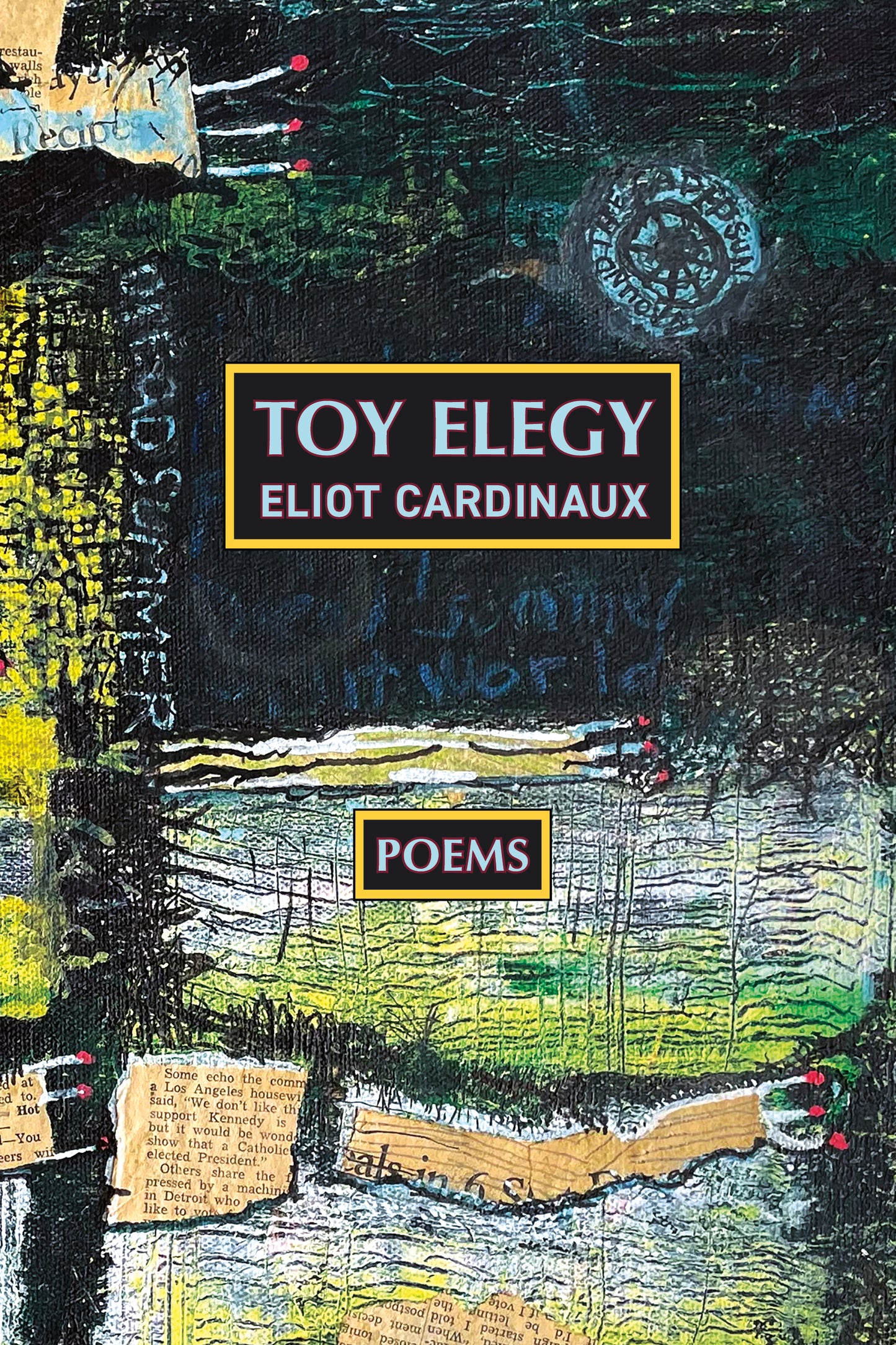Eliot Cardinaux: Toy Elegy
Eliot Cardinaux: Toy Elegy
Couldn't load pickup availability
The second in a chronological trio of books beginning with Quiet Labor (Bodily Press, 2024), Eliot Cardinaux’s Toy Elegy finds its author stripping language bare, leaving the void at its heart to throb with the grey feeling states of grief, dislocation, loneliness, & loss. Through each portal of the book’s four sections, words-approaching-music, and music-approaching-language peripherally drift, intertwining the poet’s essential solitude and wanderlust with a kind of survivor’s empathy and hunger for a homeland; what poet Mark Scroggins identifies as “some Europe of the mind and America of the heart.”
Eliot Cardinaux is a poet, pianist, composer, and translator working at the intersection of the lyric and improvised music. The author of On the Long Blue Night (Dos Madres, 2023), Eliot has produced over a dozen albums of original music, as well, including American Thicket (Loyal Label, 2016) with Mat Maneri, Thomas Morgan, and Flin van Hemmen, and most recently, Imminence (self-released, 2024), with American percussionist Gary Fieldman. He is the founding editor of The Bodily Press.
“The poems of Eliot Cardinaux’s Toy Elegy are bottle-messages from an interior island both desert and murmuring with voices—voices from enigmatic pasts and stillborn futures, from some Europe of the mind and America of the heart. In their brevity and suggestiveness, they feel like eroding, radioactive ropes of sand: they dissolve under the reading eye, yet remain lodged in the imagination with a stubborn half-life. They are haunted, and in turn they haunt.”
—Mark Scroggins
“Rendering and rent by rapt anticipation and sorrow, Eliot Cardinaux writes with a preternatural grace. The natural world helps him out. Its beauty and wonder arrive in waves of heightened perception and desire, despite, at times, almost terrifying incursions of less perceptible realities. “Make ready for your gifts. / Make ready. / Everything / passes away” the poet advises. This is a poetry of quick, sure strokes that catch the world’s transience and ours, a poetry of delicately brushed ink that both mourns and hints at the gifts yet to find us in our ‘extending present,’ where we somehow find time to suffer, love and exult.”
—Joseph Donahue


